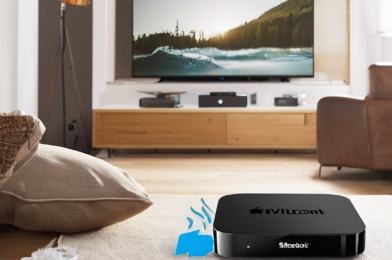As we move into the next decade, virtual reality (VR) is an exciting technology that continues to evolve and capture the imagination of consumers and businesses alike. With advancements in hardware and software, VR is becoming increasingly accessible and immersive, offering users a unique and captivating experience. So, is it worth jumping into VR in 2024? Absolutely!
VR has come a long way since its early days, and the technology is now more affordable and user-friendly than ever before. The selection of VR headsets has expanded, offering a range of options for consumers with different budgets and preferences. Standalone headsets, such as the Oculus Quest 2, have removed the need for powerful PCs, making VR more accessible to the general public.
The VR content ecosystem has also grown exponentially. There are now countless games, social applications, and immersive experiences available that showcase the potential of VR. You can explore virtual worlds, interact with friends in VR chat rooms, or even create your own VR content. The level of immersion and interactivity that VR provides offers a compelling proposition for users seeking novel entertainment options.
For gamers, VR offers a whole new dimension of immersion. Being able to physically look around a virtual environment, interact with objects, and move through a game world using natural body motions enhances the gaming experience like never before. Additionally, VR provides a social gaming experience, allowing players to meet and interact with others from around the world in virtual environments.
But VR is not just for gaming. The technology is making significant inroads into various industries, including healthcare, education, and real estate. In healthcare, VR is being used for pain management, phobia treatment, and rehabilitation. In education, VR is revolutionizing teaching methods by offering students immersive and interactive learning experiences. In the real estate industry, VR is being utilized to provide virtual property tours, allowing potential buyers to experience a space remotely.
The applications of VR are vast, and we’ve only scratched the surface. As the technology continues to evolve and become more integrated with our daily lives, the possibilities are endless. With Web3 and the metaverse gaining traction, VR is poised to play an even bigger role in how we interact with the digital world.
However, there are still some challenges to VR adoption. The technology can still be expensive for some, and there are concerns about the potential impact on health, such as causing motion sickness or eye strain. Additionally, the lack of quality content remains an issue for some users. Despite these challenges, VR is an exciting and rapidly growing industry that is worth keeping an eye on.
So, if you haven’t already, 2024 is a great year to dip your toes into the world of VR. With advancements in technology and an ever-growing content ecosystem, you can expect an immersive and captivating experience. Whether you’re a gamer, a social enthusiast, or someone looking for novel applications in your field, VR has something to offer for everyone. So, go ahead, take the plunge, and explore the exciting world of virtual reality!
Make sure to check out some of the top VR headsets and their unique features to decide which one suits your needs. With VR, the possibilities are endless, and it’s an exciting time to be a part of this evolving technology landscape! Stay tuned for more VR updates and trends in the coming months as we explore this fascinating world together!
Remember, the future is already here, and VR is leading the charge.







